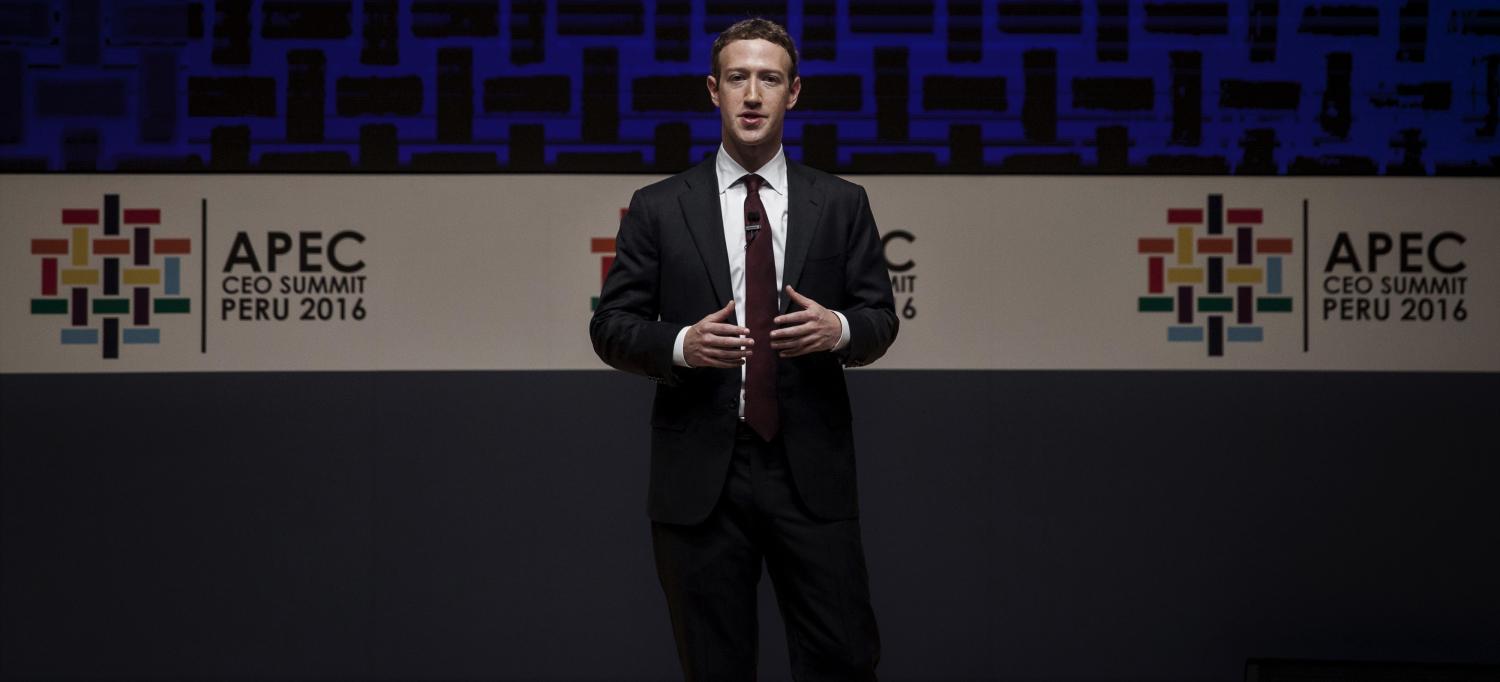After blistering amounts of criticism during and after the US presidential election, Facebook announced last week that it will prevent websites that intentionally deceive visitors from using their ad-selling services. In recent days Facebook CEO Mark Zuckerberg has described in further detail how his company will seek to better prevent the spread of fake news in the future.
Since its creation just over a decade ago, Facebook has almost singlehandedly clawed the means of news distribution off traditional publishers and welded it to its global social network; some 44% of US adults report they get news on the site, compared with 9% of US adults for Twitter. At the same time, Facebook maintains it is not a media company but a technology company, thus exempting it from the editorial duties being a media outlet normally entails. 'We [Facebook] build the tools, we do not produce any content,' Zuckerberg said in August.
Up until quite recently creating and distributing the news has been a packaged affair for outlets – the argument that social media companies should be able to profit from distributing the news while leaving all blame for any ill-societal effects on the shoulders of news creators is an incredulous one, and it’s a relief to hear Zuckerberg change his rhetoric somewhat on this point. With great power should come great responsibility. However, a global system that relies in part on the whims of whoever the CEO of Facebook happens to be at that moment is not a particularly sturdy system, and we might pause to consider a hypothetical world where Facebook or some other prominent social media site let users distribute the ‘news’ relatively unfettered by editorial discretion (crowd-sourced or otherwise).
The notion that democracy depends on a free press to hold power to account and inform electorates now seems a little naïve, as the less scrupulous elements of that press realise you can make more money misinforming them instead. These publishers can use Facebook as a reputable-enough front to thrust their articles on a global audience, relying on pieces going viral for reach rather than established reputation (as former Facebook product designer Bobby Goodlatte writes, ‘[Facebook]’s News Feed optimises for engagement. As we’ve learned this election, bullshit is highly engaging’). They can do this without much fear of either regulatory discipline or losing their regular readership, as they never had one to begin with. It's also unlikely Hillary Clinton will get any kind of legal revenge on the Macedonian teenagers who posted stories about her imminent arrest.
Zuckerberg was correct in saying that the result of the US election probably did not rest on the social propagation of fake news, but it’s not unreasonable to imagine that one day in one country around the world it might - as the New York Times notes, misinformation on Facebook has warped political debate in Myanmar, Indonesia, the Philippines, Colombia and elsewhere. It seems sacrilegious to question the principle of free expression (and free distribution of that expression), but when democracies around the world come to be reliant on Silicon Valley to thwart the dissemination of fake and defamatory political news, it also seems impossible to continue as we were.
So is it time to regulate? Prior to Zuckerberg’s announcement of planned new measures, the Independent’s editorial board railed against the idea:
It would surely be wrong to conclude that heavier regulation is the answer in all this. It would pose any number of practical problems if, for instance, Facebook had to confirm the veracity of any news story on its network before it could be shared. Any attempt to narrow the parameters of what is and is not permissible on the site would be beset by legal challenges and ultimately add further fuel to the conspiracy theorists who see establishment stitch-ups at every turn. Further, it is unthinkable that news publishers would be happy for Facebook to have the power to sit in judgement on whether a particular article or publisher should be excluded from the world’s biggest platform for news.
Certainly, this kind of story-by-story regulation would be absurdly burdensome and would essentially kill Facebook as a news distributor. But that’s not the kind of measure that should be implemented, or that Zuckerberg has proposed; rather, he outlined seven measures to allow for stronger technical detection, easier reporting, third-party verification, flagging, curating a better ‘related articles’ section, disrupting the financial incentives for spamming fake news, and further consulting with those in the news industry. There is clearly some policy space between a totally unpoliced free-for-all and the traditional model of publishing responsibility (you print it, you own it). There's also some indication of popular support for this approach, with a YouGov poll showing 72% of UK adults agreeing that social media platforms like Facebook should filter out and remove fake news stories. The Independent was correct to predict that certain publishers would be unhappy with the prospect of a heavier editorial hand from Facebook, but perhaps their unhappiness is a sign of a policy solution with some clout – plus, it's hardly the across-the-board sentiment the Independent suggests it might be.
Maybe this seven point-plan to stop the fake news will be sufficient to prevent fake news stories getting more engagement than real ones. Maybe it won't be. In either case, when the stakes are this high why should the US or the international community just leave it to Zuck?
This September, Facebook had 1.79 billion active monthly users. It is attempting to spread internet connectivity to remote areas via solar-powered drones in order to get even more users. It is not just another social media company; it is an unfathomably enormous and necessarily political institution. How it chooses to address the spread of fake news will affect every democracy on the planet, established and fledgling. Facebook is a global utility, and it deserves global attention.
Photo: Getty Images/Bloomberg
